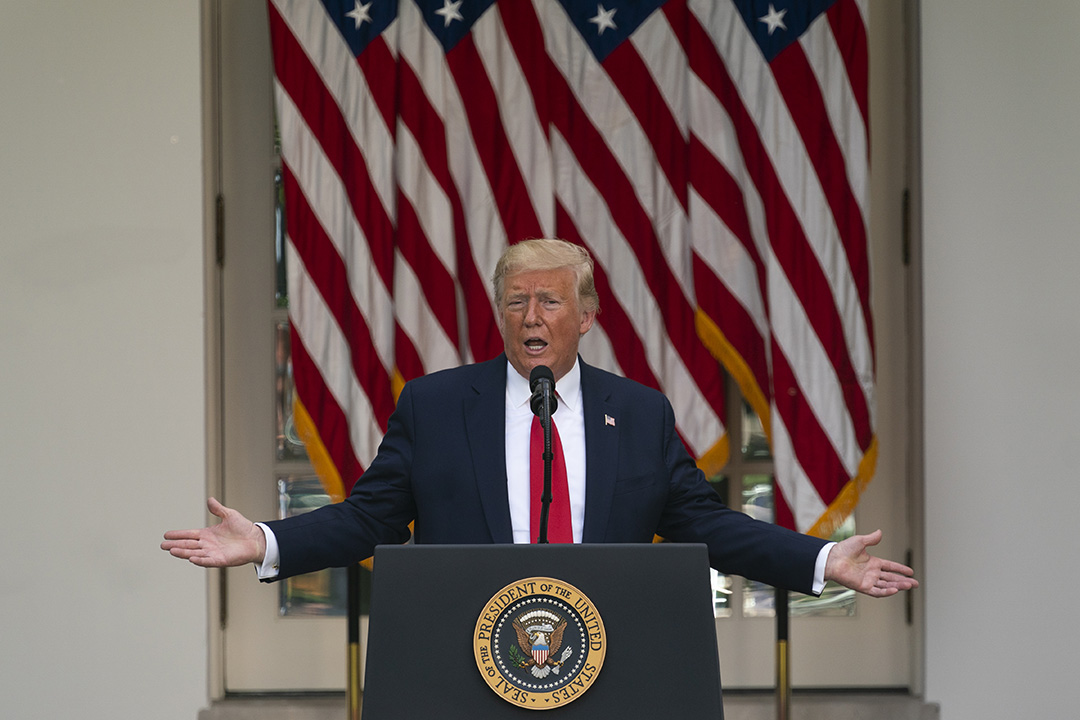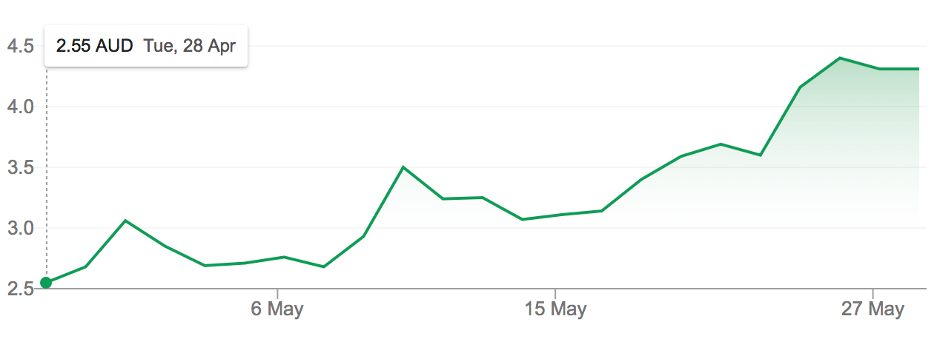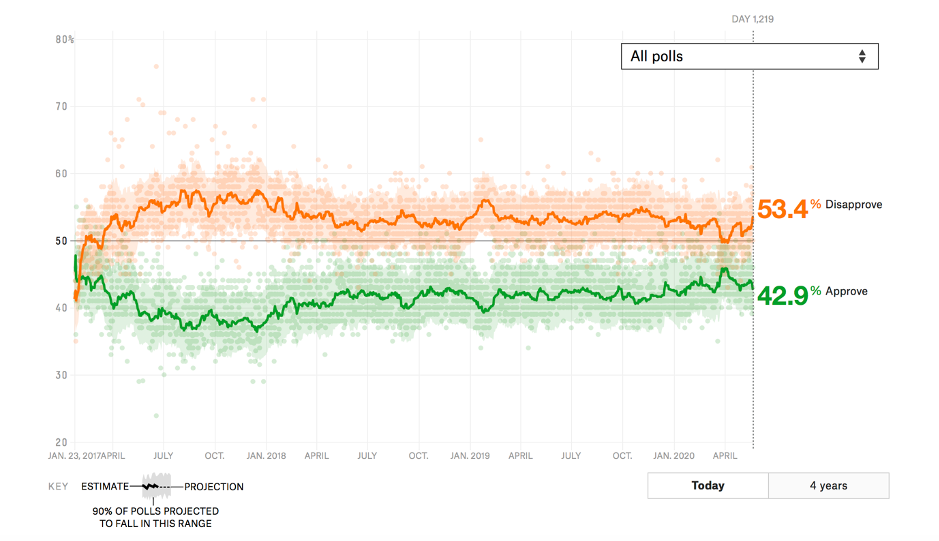

With the US and Aussie stock markets believing the worst of the Coronavirus crash of markets is over (at least for the time being) and with the Dow up 553 points overnight and Bank of America up 14.7% in two days, like it or not, the only thing we have to fear is Donald Trump himself!
I know second-wave infections are probably still another thing to fear but the fact that stocks are surging, when many fund managers and experienced stock market players have been holding cash, waiting for a second-leg down, indicates that there is a belief that we won’t go back to total lockdowns and closures.
The community of the world accepted the drastic action of locking down cities and effectively economies to beat an aggressive outbreak in Milan that was bound to threaten the world, with international tourism the bug that was going to carry it everywhere.
That had to be closed down and in the absence of what we know now, closing the country down made sense. However, we know a lot more now and a decent treatment or even a vaccine could be here much sooner than predicted two months ago.
Overnight, TheStreet.com reported that America’s top medico Dr Anthony Fauci said: “We might have a vaccine by the end of the year.”
Meanwhile, the processes of dealing with infection cases and outbreaks are more professional now. And it’s likely that the stock market is reacting positively to this.
All this says the second-wave of infection threat is less likely to shut down cities and economies. This has made economists rush back to their computers to factor in new numbers that could bring down the likelihood of unemployment topping 10% and economic growth contracting by the same amount in Australia.
At the start of this, both the IMF and Reserve Bank thought a 6.7% fall in growth in 2020 would be followed up by a 6.1% surge in 2021. It was their best guess. Who knows who’ll be right but the bottom line is that the kinds of economic forecasts made one or two months ago were ‘infected’ by talk that we could be in “hibernation” for six months and that deaths in Australia could be 50,000! The latest count is 103 and it’s no surprise that the stock market is positive and bank share prices are surging, when a lot of experts kept saying these money-making machines are cooked.
Let me explain why stock prices are rising using the banks as an example.
If we’re beating the virus better than expected and we also learn that only three million people are on the JobKeeper wage subsidy (when the Government expected six million), then the COVID-19’s crash tackle on the economy is a lot softer than first expected.
That means the potential profit drops or the loss implications of the virus will be smaller than expected. And stock prices directly relate to expected future profits. That means if our economy won’t contract as badly as expected, unemployment will be lower than expected and sales will be higher than expected. So banks, which have factored in losses from all this, will have to redo their numbers.
They should be more profitable and Westpac and ANZ might have to stop deferring their dividends and pay a reduced dividend, like NAB did. This better profitability outlook for banks explains why bank shares have spiked recently.
Let’s think this through: if the economy is better, what businesses are connected to every aspect of business, consumers and investors? The banks! NAB’s share price is up nearly 17% this week. That’s a screaming endorsement of the optimistic view on what lies ahead.
So is it safe to buy stocks now?
Let me give you the tip that fund managers, who were holding cash, are now buying, fearing that their belief that a worse, second-leg down for stocks was out there waiting to happen, is wrong. That said, the current rise in the stock index will eventually lose steam but there will be some individual companies that were ignored or despised because of their exposure to the virus, such as travel businesses, that will still have some big rises.
Have a look at Webjet, which I stuck my neck out in my publications and on my Switzer TV Investing show.
Webjet (WEB)

This company’s share price is up 89% since April 23 and indicates that the market is believing its business has more potential now that it did five weeks ago.
The current share price is $4.31 and fell as low as $2.28 with the Coronavirus crash. It was a $9.82 stock before the “China virus” (as Donald Trump calls it) changed the world as we know it.

Donald is the new curve ball we have to deal with if we want to play stocks. His popularity has suffered because of his handling of the virus, as this chart above shows.
He’s playing up China’s role in the creation of and the mishandling of the virus. He’s singling out big Chinese companies such as Alibaba, which might be delisted on the US stock market following legislation passed in the Senate.
He’s also standing up for the protestors in Hong Kong. And we now learn that the trade deal struck by both countries, which took stocks up significantly in 2019, could be under jeopardy.
We don’t need this for our stocks. I suspect the US President will use name-calling and threats to China to win votes ahead of his election in November but he really can’t afford to send Wall Street madly negative and be comfortable that he will be re-elected.
Get this, 39 million Americans have lost their jobs in nine weeks and the economy is in recession, which some economists think could be over by the end of June. However, if Donald brings on another trade war, the US recession will be longer and the stock market won’t like that news.
That’s a risk I’m betting against by being heavily in stocks right now. I know the risks and I hope Donald doesn’t go rogue on us with China.
Did I really write this? Donald is always rogue so I guess I should have said: Let’s hope Donald doesn’t take rogueness to a new level!”